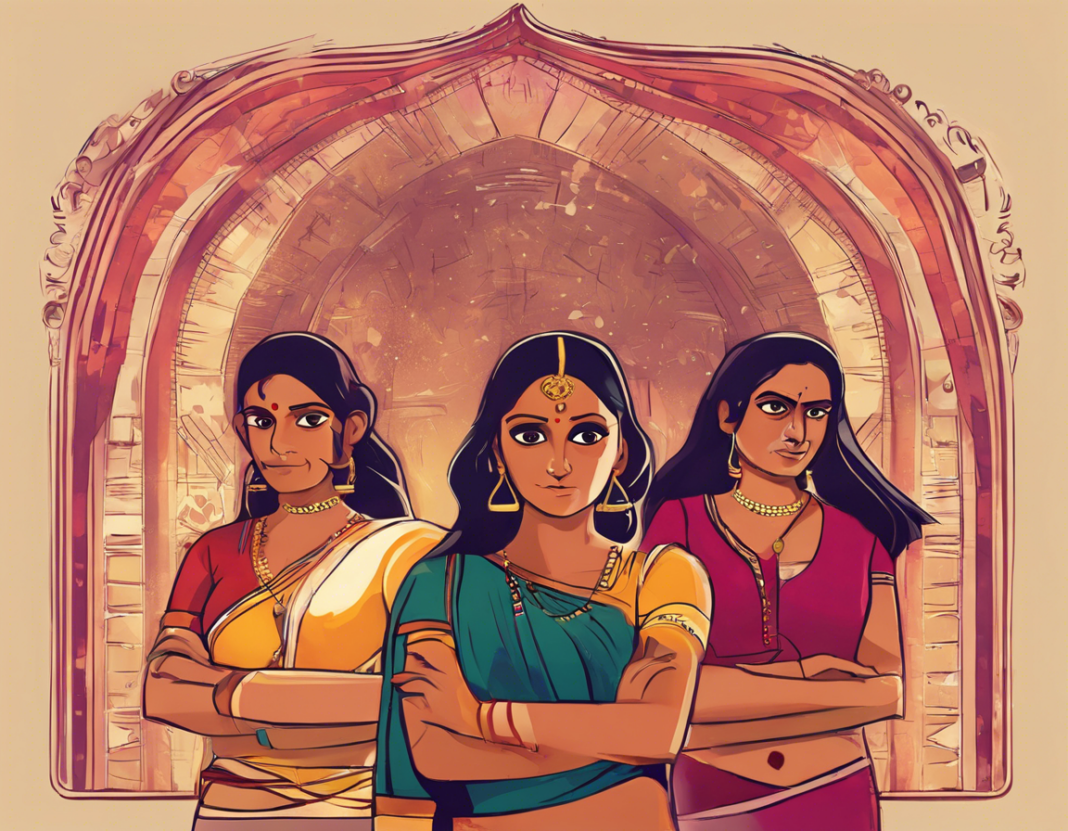In the realms of Indian cinema, certain movies transcend the boundaries of mere entertainment and become powerful cultural touchstones that leave an indelible impact on society. One such film that stands out in this regard is Damini – Lightning. Released in 1993, this iconic Bollywood film directed by Rajkumar Santoshi delves into the pervasive issue of injustice against women in Indian society, challenging societal norms and advocating for women’s rights in a powerful and resonant manner. With its compelling storyline, stellar performances, and evocative themes, Damini remains a cinematic masterpiece that continues to spark conversations and provoke introspection even decades after its release.
The Storyline and Themes of Damini
At the heart of Damini lies the story of the titular character, played by Meenakshi Seshadri, a woman who witnesses a brutal act of violence against her maid and decides to fight for justice against all odds. The film highlights the challenges women face in the Indian legal system and society at large, shedding light on issues such as patriarchy, corruption, and power dynamics that hinder the pursuit of justice for victims of sexual assault.
Meenakshi Seshadri’s Portrayal
Meenakshi Seshadri’s portrayal of Damini is a tour de force, capturing the character’s resilience, vulnerability, and strength in the face of adversity. Her performance elevates the film and brings emotional depth to the narrative, making Damini a poignant and unforgettable cinematic experience.
Impact and Legacy
Damini struck a chord with audiences upon its release and continues to be revered for its unflinching portrayal of social issues. The film’s impact transcended the silver screen, sparking discussions about gender equality, justice, and women’s rights in India. It served as a rallying cry for change, inspiring many to question deeply ingrained societal norms and advocate for a more just and equitable society.
Legal Reforms
One of the most significant outcomes of Damini was its role in raising awareness about the need for legal reforms to better protect women against violence and discrimination. The film prompted conversations about the flaws in the legal system and the urgent need for reforms to ensure timely and fair justice for victims of sexual violence.
Empowerment of Women
Damini also played a pivotal role in empowering women to speak out against injustice and assert their rights. The character of Damini herself became a symbol of courage and resilience, inspiring women across India to stand up for themselves and challenge the status quo.
Cinematic Brilliance and Critical Acclaim
Apart from its social impact, Damini continues to be lauded for its cinematic brilliance. The film’s tight screenplay, powerful dialogues, and emotional depth have earned it critical acclaim and a place among the finest works of Indian cinema. It masterfully blends elements of drama, social commentary, and emotional storytelling to create a captivating and thought-provoking narrative.
Iconic Dialogues
Damini is renowned for its iconic dialogues that have become part of the lexicon of Indian cinema. Lines such as “Taareekh pe taareekh” and “Ye dhai kilo ka haath” have attained legendary status and continue to resonate with audiences, embodying the film’s themes of justice and resilience.
Music and Cinematography
The film’s music score, composed by the legendary duo Nadeem-Shravan, adds another layer of emotional depth to the narrative, enhancing the film’s impact and resonance. The cinematography captures the stark realities of Indian society, juxtaposing moments of beauty with moments of harsh truth, creating a visual feast for the audience.
The Socio-Political Context of Damini
Damini was released at a time when India was grappling with issues of gender inequality, violence against women, and systemic corruption. The film’s release sparked widespread debates and discussions about these pressing issues, forcing society to confront uncomfortable truths and advocate for change.
#MeToo Movement in India
In recent years, India has witnessed a burgeoning #MeToo movement that has exposed the prevalence of sexual harassment and abuse in various sectors of society. Damini‘s themes of speaking truth to power and seeking justice for victims resonate strongly with the ethos of the #MeToo movement, underscoring the film’s enduring relevance in contemporary times.
Frequently Asked Questions (FAQs)
1. Was Damini based on a true story?
No, Damini is a work of fiction. However, the film draws inspiration from real-life incidents of violence against women and the challenges they face in seeking justice.
2. What impact did Damini have on Indian society?
Damini sparked conversations about gender equality, justice, and women’s rights in India. It played a pivotal role in raising awareness about the need for legal reforms and empowering women to speak out against injustice.
3. Who were the key actors in Damini?
Meenakshi Seshadri played the titular role of Damini, with Sunny Deol portraying her lawyer. The film also featured acclaimed actors such as Rishi Kapoor and Amrish Puri in pivotal roles.
4. What were some memorable dialogues from Damini?
Some iconic dialogues from Damini include “Taareekh pe taareekh” and “Ye dhai kilo ka haath”, which have become legendary in Indian cinema.
5. How did Damini contribute to the evolution of Indian cinema?
Damini pushed the boundaries of Indian cinema by tackling sensitive social issues with honesty and integrity. It set a precedent for socially conscious filmmaking and inspired future generations of filmmakers to address pressing social issues in their work.
6. Has Damini received any awards or accolades?
Yes, Damini received critical acclaim and several awards, including the Filmfare Award for Best Movie and Best Director. Meenakshi Seshadri also won the Filmfare Award for Best Actress for her performance in the film.
In conclusion, Damini stands as a cinematic masterpiece that continues to resonate with audiences for its powerful storytelling, compelling performances, and timeless themes. The film’s enduring legacy lies in its ability to provoke thought, spark conversations, and inspire change, making it a seminal work of Indian cinema that will be cherished for generations to come.
